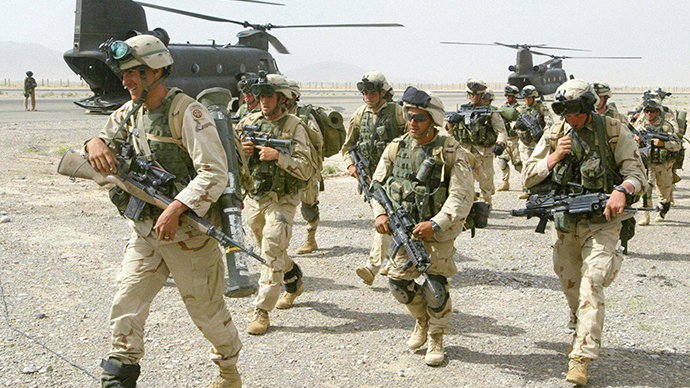US military blocks access to The Guardian website for troops around the world

Uncle Sam is mighty upset, and that’s not a good thing for American troops itching to read the news. The Pentagon has blocked access to The Guardian newspaper’s website for all soldiers stationed in the Middle East.
The Guardian confirmed on Monday that its website has been blacklisted by a filtering system installed by the United States Department of Defense on the computer system utilized by thousands of service members deployed to the area covered by the US Central Command, or CENTCOM. That “theater-wide” effort has reportedly blocked access to the award-winning newspaper’s Web edition for all soldiers in Afghanistan, the Middle East, South Asia and even the command’s headquarters in Florida.
The decision to keep overseas troops from accessing the newspaper comes three days after The Guardian learned that certain pages of its website were inaccessible to soldiers stationed within the US. The Defense Department initially restricted access to Guardian articles containing classified material — such as the leaked National Security Agency documents recently disclosed to the paper by former contractor Edward Snowden — but the Pentagon has since widened that ban, making the entire website off limits for soldiers not just within America’s border, but those stationed in locales like Afghanistan and Iraq.
Banning The Guardian in Afghanistan alone means the 62,000 troops stationed in America’s longest running-war are unable to access the website.
“US Central Command is among other DOD organizations that routinely take preventative measures to safeguard the chance of spillage of classified information on to unclassified computer networks, even if the source of the information is itself unclassified,” Army Lt Col Steve Wollman, a spokesman for CENTCOM, told The Guardian. “One of the purposes for preventing this spillage is to protect CENTCOM personnel from inadvertently amplifying disclosed but classified information.”
“Additionally, classified information is not automatically declassified simply because of unauthorized disclosure,” Wollman added. “Classified information is prohibited from specific unclassified networks, even if the information has already been published in unclassified media that are available to the general public, such as online news organizations.”
Military computers have previously been blocked from accessing the website for WikiLeaks, an anti-secrecy organization that has published hundreds of thousands of classified documents. Blacklisting the entirety of The Guardian appears unprecedented though, and is a direct response to the NSA documents that have been sporadically released by the paper since early June.
The Guardian first published on June 6 a top-secret court order revealing that the NSA routinely collects metadata pertaining to the phone records of millions of Americans. After the paper revealed evidence of the US tapping into Internet services several days later, former Booz Allen Hamilton contractor Edward Snowden identified himself as the source of the leaks. Snowden, 30, has since been charged with espionage and is reportedly in Moscow awaiting potential asylum. Snowden has requested assistance from upwards of 20 separate countries, but could face decades in prison if those requests are ignored and he is extradited to the US to stand trial.














